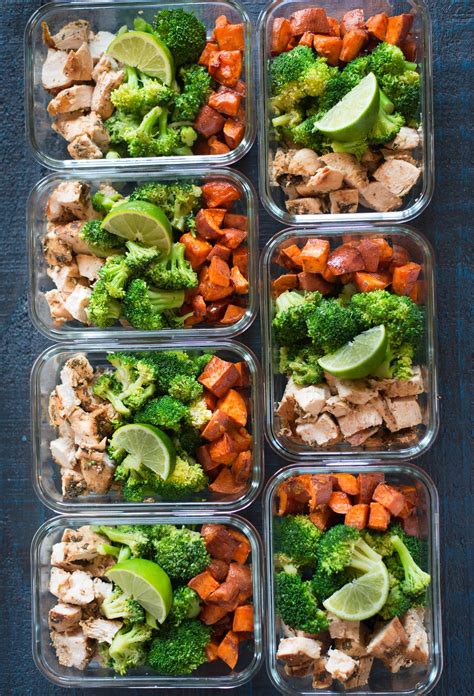What fast, nutrient-dense meals fuel all-day focus and prevent energy crashes?

Cracking the Code to Sustained Energy and Peak Performance
Imagine a workday where your mind stays sharp from morning coffee to evening wind-down, free from the dreaded mid-afternoon slump. This isn’t a fantasy; it’s a reality achievable through strategic nutrition. Our dietary choices profoundly impact our energy levels, cognitive function, and overall productivity. The secret lies in understanding how to fuel our bodies with fast, nutrient-dense meals that provide a steady release of energy, rather than quick spikes followed by inevitable crashes.

The Pitfalls of Processed Foods and Sugar Spikes
Many modern diets are laden with refined carbohydrates and sugars, which offer an immediate but fleeting burst of energy. While tempting for their convenience, these foods cause rapid surges in blood glucose, triggering an equally rapid insulin response. The result? A subsequent drop in blood sugar that leaves you feeling sluggish, irritable, and struggling to concentrate – the infamous energy crash. This cycle not only hinders focus but also perpetuates cravings for more quick fixes, creating a detrimental loop.

Building Blocks for Uninterrupted Focus
To avoid energy crashes and maintain optimal brain function, meals must be balanced and rich in specific macronutrients and micronutrients. These are the cornerstones of sustained energy:
- Complex Carbohydrates: Unlike simple sugars, complex carbs (found in whole grains, vegetables, and legumes) break down slowly, providing a steady supply of glucose to the brain and muscles.
- Lean Proteins: Essential for satiety and muscle repair, protein also helps stabilize blood sugar by slowing down the absorption of carbohydrates.
- Healthy Fats: Crucial for brain health and hormone production, healthy fats (from avocados, nuts, seeds, and olive oil) provide long-lasting energy and increase absorption of fat-soluble vitamins.
- Fiber: Found in plants, fiber aids digestion, promotes fullness, and further regulates blood sugar levels, preventing spikes and dips.
- Micronutrients: Vitamins and minerals (especially B vitamins, magnesium, and iron) are vital cofactors in energy production pathways.

Quick and Easy Meals to Power Your Day
Implementing these principles doesn’t require hours in the kitchen. Here are some fast, nutrient-dense meal ideas:
Breakfast Boosters:
- Overnight Oats with Berries and Nuts: Combine rolled oats, chia seeds, milk (dairy or non-dairy), and a scoop of protein powder. Top with fresh berries and a handful of almonds or walnuts in the morning.
- Scrambled Eggs with Spinach and Whole-Wheat Toast: A quick protein powerhouse. Add a side of avocado for healthy fats.
- Greek Yogurt Parfait: Layer plain Greek yogurt with mixed berries, a sprinkle of granola, and a dash of cinnamon.
Lunchtime Lifts:
- Quinoa Salad with Roasted Vegetables and Chickpeas: Prepare a batch of quinoa and roasted veggies (broccoli, bell peppers) at the start of the week. Combine with canned chickpeas and a light vinaigrette for a quick, fulfilling lunch.
- Tuna or Salmon Salad Wraps: Mix canned tuna or salmon with Greek yogurt (instead of mayo), chopped celery, and serve in whole-wheat lettuce wraps or tortillas.
- Lentil Soup: A hearty, fiber-rich option that can be made in a large batch and portioned for the week.
Snack Saviors:
- Apple slices with almond butter
- Hard-boiled eggs
- A small handful of mixed nuts and seeds
- Vegetable sticks with hummus

Beyond Food: The Role of Hydration and Meal Timing
While food choices are paramount, don’t underestimate the power of proper hydration. Dehydration can mimic hunger and lead to fatigue and reduced concentration. Aim for at least 8 glasses of water throughout the day. Furthermore, consider the timing of your meals. Eating smaller, balanced meals every 3-4 hours can help maintain steady blood sugar levels and prevent extreme hunger, which often leads to poor food choices. Listen to your body’s hunger cues and avoid overeating, which can divert energy towards digestion and away from cognitive tasks.

Cultivating a Lifestyle of Sustained Energy
Transitioning to a diet rich in fast, nutrient-dense meals is a powerful investment in your daily focus, productivity, and overall well-being. By prioritizing complex carbohydrates, lean proteins, healthy fats, and ample fiber, you can effectively stabilize blood sugar, banish energy crashes, and unlock a consistent stream of mental clarity. Start small, experiment with the suggested meals, and observe the transformative impact on your day-to-day energy and cognitive performance. Fueling your body smartly isn’t just about avoiding hunger; it’s about optimizing your potential.








